Interest Free Financing Up To 36 Months
WE DO NOT ONLY PUMP YOUR TANK - WE CLEAN IT!
Multiple Financing Options Are Available Up To 36 Months
Interest Free Financing Up To 36 Months
WE DO NOT ONLY PUMP YOUR TANK - WE CLEAN IT!
Multiple Financing Options Are Available Up To 36 Months
Septic tanks are used for domestic sewer systems in properties without direct access to municipal sewage systems. A properly built and maintained septic tank can last 15 to 20 years. This is because a correctly designed tank should tolerate 10% of the household wastewater entering the tank without any significant issues. Septic Blue of Raleigh can help with septic tank pumping and septic tank repair.
The composition of your septic tank will determine its lifespan. A concrete tank can last up to 50 years, while a steel tank can last up to 20 years. Concrete tanks are more expensive, but they have the advantage of being able to store more solids and liquids at one time than steel tanks.
Steel tanks are usually buried in sandy soil for stability because clay soils corrode the steel over time. Due to its weight, this type of tank is not recommended for use in high-density residential areas. Still, it’s ideal for remote or rural locations where the terrain makes digging difficult or impossible. Steel tanks can last up to 20 years. A steel tank also won’t crack if hit by heavy equipment such as tractors or graders during excavation work for new homes or buildings.
Concrete is used to make the body of the septic tank and serves as the support for the tank floor. The concrete used in constructing a septic tank should be strong enough to withstand heavy loads and compressive strength.
The drain field comprises perforated pipes that carry wastewater from the septic tank to an absorption area where microorganisms will break it down into harmless organic matter that plants and trees can use as nutrients. This process takes 2-5 days, depending on the volume of solids in your wastewater, type of soil, and weather conditions (temperature). The primary purpose is to get rid of excess nitrogen in your wastewater before it enters our watersheds or groundwater aquifers through infiltration or evaporation from surface areas such as lakes, rivers, and ponds where you swim or boat during the summer months.
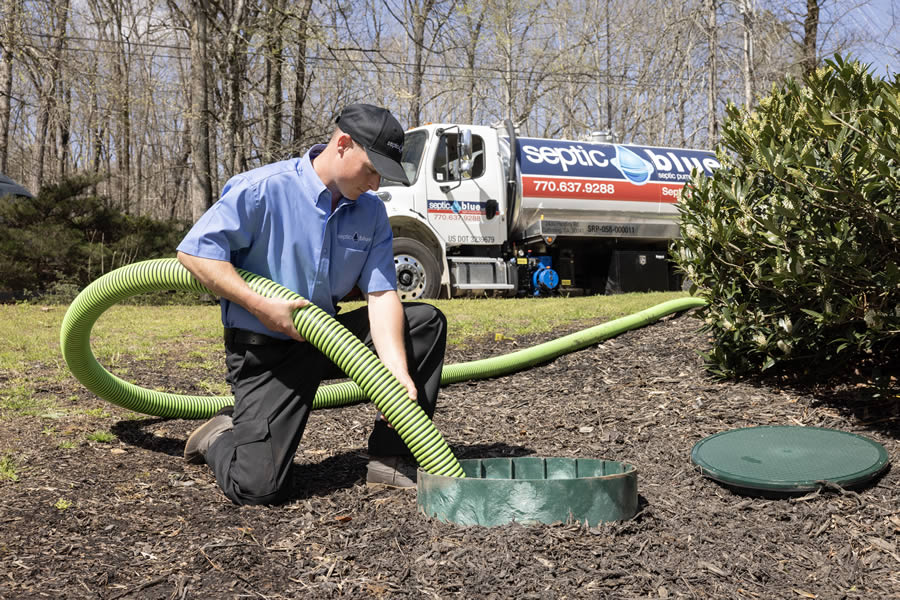
Septic tank pumping in Raleigh has never been so affordable and accessible thanks to the professionals at Septic Blue. We are…
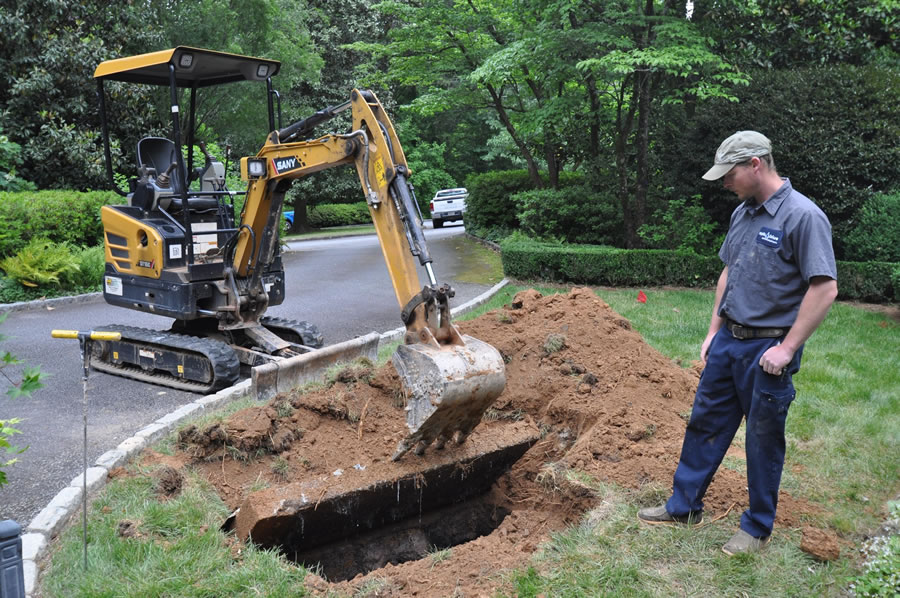
One quarter of Americans rely on septic tanks to process household waste. Most Septic Blue locations have septic tank experts who…
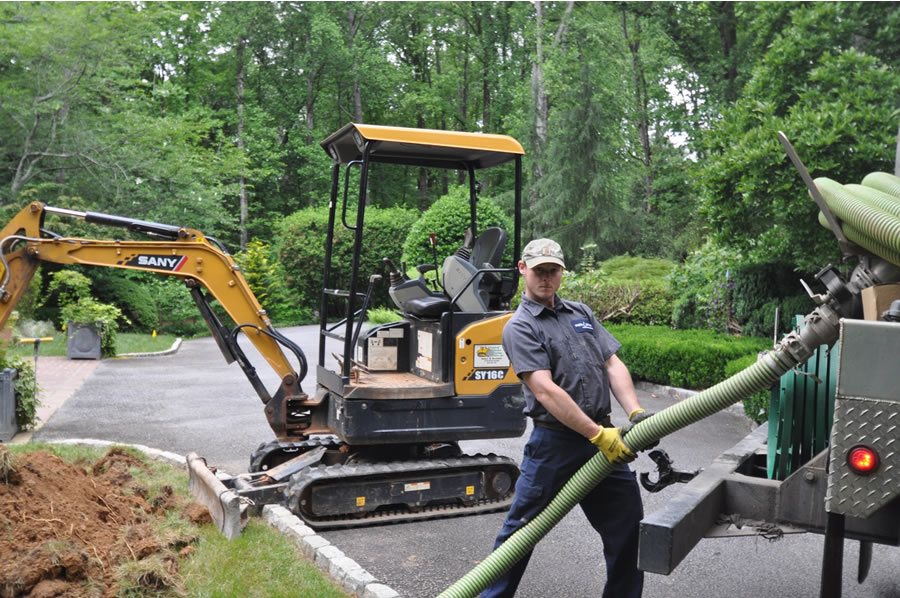
Call Septic Blue today for a second opinion. If you choose to go with Septic Blue, you'll receive $250 off your…
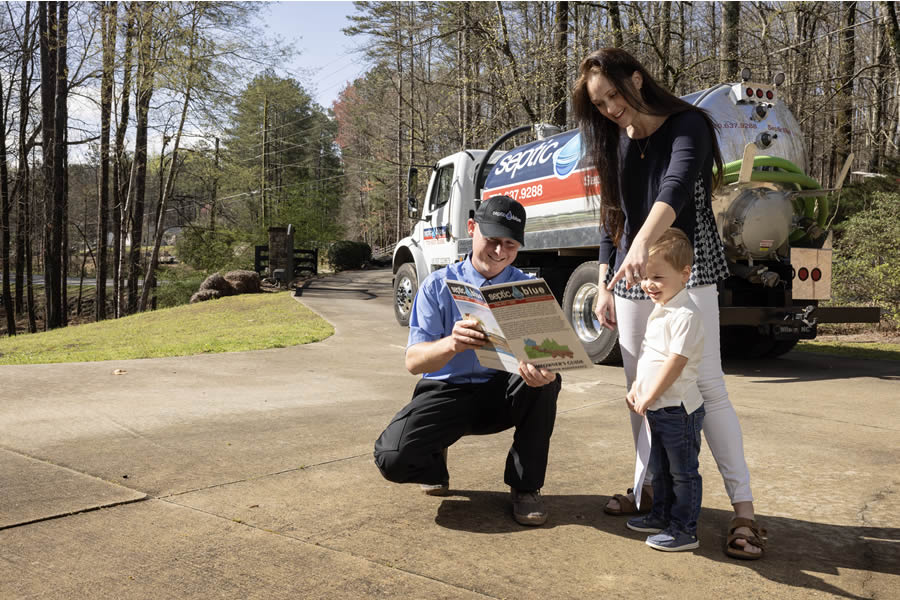
If you are a homeowner or resident in Raleigh that is among the 20 percent of households in the U.S. with…
Professional Saptic Plumbing solutions for every need. Contact Us Today!
This can be either acidic or alkaline soil. A septic tank will last longer if it's buried in acidic soil than if it's buried in alkaline soil.
The longer you live in your home and the more waste you produce, the sooner you will need to replace your septic system. If you have a large family or constantly host parties at your home, this may cause your septic system to deteriorate more quickly than usual. You should also replace your septic system if its condition has deteriorated or if it has been damaged due to flooding or other damage.
Septic tanks are made of concrete or plastic and can be damaged by acidic soil over time; this is more likely if an underlying layer of clay is present in the area where you live.
If there's a high water table near your home, it can cause problems with your existing septic system, and this can lead to backup in your home or even failure of your entire system due to excessive pressure from groundwater pushing against your pipes and walls.
If you live in an area with frequent rainstorms or flooding, this can shorten your septic tank's lifespan. This is because excessive amounts of water entering the system can cause problems with effluent distribution and reduce the effectiveness of your treatment process. If you frequently use water from other sources, such as tubs or showers, this could also shorten the life expectancy of your septic system.
A septic tank comprises several parts, all of which need to be inspected regularly so that you can have peace of mind that your system is working correctly. Here are some things you should look out for:
The lid – Make sure there are no cracks or holes in the lid, as this could lead to leakage into the ground around your home. If there are any cracks or holes, contact a professional immediately to repair or replace them.
The drain field – This is an underground pipe network where wastewater flows through before reaching the leach field. Check for any signs of clogging, such as roots or debris. You can hire a professional to inspect and clear these pipes if needed.
The leach field is where water flows out after being treated by the septic tank. It should be clear of anything that can block its flow, such as roots, rocks, or broken pipes, so that it can treat wastewater effectively.
A septic tank installation is a substantial investment, and you want the lifespan of a septic tank to be in the double digits. Plenty of variables affect the life expectancy of a septic tank. Ideally, it would be beneficial to have a septic tank installation done professionally because it can avoid major problems and save you thousands in repairs. Septic Blue of Raleigh can help with all septic tank needs.
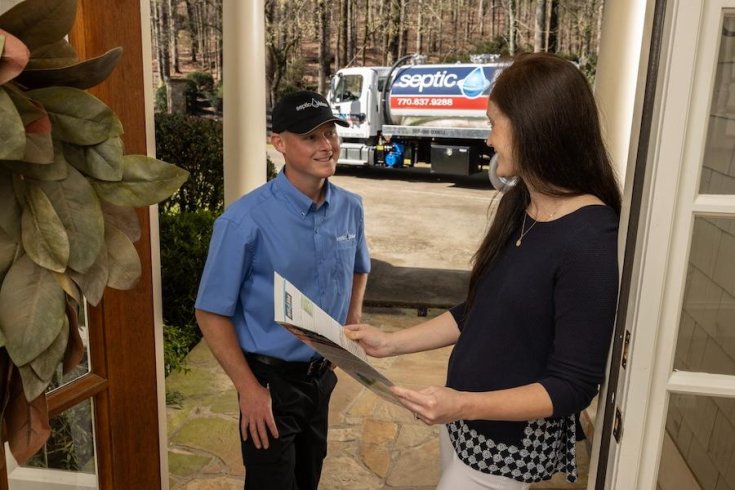
Hiring a septic company in Raleigh, NC involves more than comparing prices or scheduling the earliest appointment. Septic pumping, cleaning,…
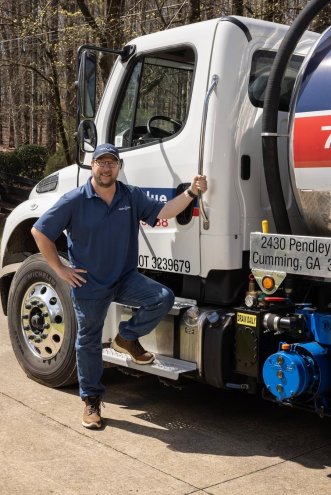
A septic system is designed to move wastewater efficiently from your home into a tank and then into the drain field.…
.webp)
Even if it often fades into the background of daily life, a septic system plays a critical role in keeping your…
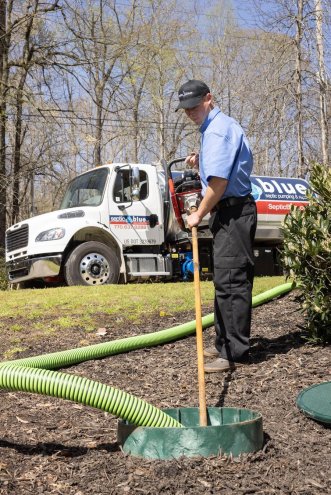
Septic systems play a critical role in protecting your home, health, and surrounding environment. Unfortunately, they're often misunderstood as systems that…